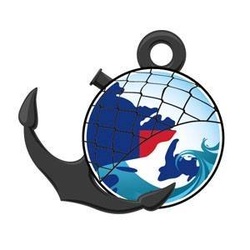
Open
MRC du Golfe-du-Saint-Laurent — Business support policy
Last Update: October 27, 2025
QC, Canada
Supports sustainable job creation and business development in MRC
Grant and Funding
At a glance
Funding available
Financing goals
Develop employee skills
Eligible Funding
- Up to 90% of project cost
Timeline
- Unspecified
Eligible candidates
Eligible Industries
- Retail trade
- Accommodation and food services
- Public administration
Location
- Golfe-du-Saint-Laurent
Legal structures
- Non-profit
- Public or Parapublic institution
- For-profit business
- Sole proprietorship
- Social economy enterprise
- Non-financial cooperative
Annual revenue
- All revenue ranges
Organisation size
- All organization sizes
Audience
- All groups
Non-profit candidates
Sector of operation
- Economic, Social and Community Development
- Employment and Training
- Business Associations
Target groups
- Rural / Remote communities
- Business owners / entrepreneurs
- Nonprofits / charities
Revenue structures
- Mixed revenue (50%+ earned)
Scope
- Municipal
- Regional
Overview
The MRC du Golfe-du-Saint-Laurent Business Support Policy aims to foster job creation, provide continuous support to entrepreneurs, and encourage social enterprise development. The program offers a maximum funding amount of $150,000 per beneficiary annually, with eligible activities including business creation, acquisition, expansion, and technical or financial support.
Activities funded
- Creation of a new business or acquisition of an existing business.
- Expansion or diversification of a business.
- Social economy enterprise projects.
- Participation in training for business skills improvement.
- Organizing and participating in forums and meetings related to industry strategy development.
- Attendance at trade fairs, congresses, and conferences to promote business growth.
- Development of collective entrepreneurship projects.
- Implementation of projects responding to the social needs of community members or creating durable quality jobs.
- Projects that aim for economic and social profitability.
Examples of admissible projects:
$ 25,000
Developing a green rooftop garden for urban sustainability
Eligibility
- Applicants must be registered and in good standing with the Québec Enterprise Registrar, except for fishermen without a NEQ.
- Eligible organizations include cooperatives (except financial), non-profit organizations, municipal organizations, private or social economy enterprises (except financial), and individuals wishing to create an enterprise.
- Organizations must serve the municipalities of MRC du Golfe-du-Saint-Laurent, which includes Côte-Nord-du-Golfe-du-Saint-Laurent, Gros-Mecatina, Saint-Augustin, Bonne-Espérance, Blanc Sablon, and the communities of Unamen Shipu and Pakua Shipu.
- Expenditures must occur after the financial assistance agreement is signed between the promoter and the MRC.
- The promoter must provide a minimum financial contribution of 10% to the project, with total government grants covering up to 90% of the project costs.
- Financial assistance for private enterprises cannot exceed 50% of project costs.
- Financial assistance is capped at $150,000 per beneficiary over a 12-month period.
Who is eligible?
- Cooperatives (excluding financial cooperatives)
- Non-profit organizations
- Municipal organizations
- Private businesses or social economy enterprises (excluding financial businesses)
- Individuals intending to start a business
- Sole proprietorships
- Partnerships
- Corporations
- For-profit organizations (excluding financial organizations)
- Non-profit organizations
- Associations
- Organizations involved in social economy enterprises
Who is not eligible
- Financial institutions such as banks and credit unions.
- Organizations primarily involved in the real estate sector, including those dealing with residential and commercial properties solely for rental or sale.
- Enterprises involved in the retail or restaurant sector, except when providing an essential local service with specific criteria such as non-competition within a municipality and a 5 km radius from similar services.
- Projects related to the relocation of business operations outside of their current community.
- Businesses that consist of personal-use real estate or those generating income strictly through leasing or selling properties.
Eligible expenses
- Capital expenditures such as land, buildings, equipment, machinery, rolling stock, incorporation, transportation, installation, and similar expenses.
- Acquisition of technology, software, or software packages, patents, and any other similar expenditures.
- Legal and professional fees and other costs incurred for consulting specialists for conducting studies.
- Expenses for business skills training, including tuition fees, materials, and other costs related to participating in approved training activities.
Eligible geographic areas
- Côte-Nord-du-Golfe-du-Saint-Laurent
- Gros-Mecatina
- Saint-Augustin
- Bonne-Espérance
- Blanc Sablon
- Communities of Unamen Shipu
- Pakua Shipu
Selection criteria
- Viability and quality of the financial plan.
- Innovative nature of the project.
- Development potential and socio-economic impacts.
- Job creation potential.
- Overall impact on the community or territory, including market space.
How to apply
- Step 1: Register Your BusinessEnsure your business is registered with the Registraire des entreprises du Québec and your registration is current.
- Create a file for your business with a valid Québec Enterprise Number (NEQ), unless you are an exempted group like certain fishermen.
- Step 2: Develop Your Project ProposalDefine the objectives and scope of your business project.
- Prepare a comprehensive business plan that includes financial projections, operational plans, and an analysis of the socio-economic impact.
- Identify the funding stream applicable to your project, whether entrepreneurial, diversification or social economy development.
- Step 3: Complete the Application FormFill in the application form with all required information accurately.
- Ensure all sections are filled and signed as needed.
- Step 4: Compile Required DocumentationGather supporting documents such as financial statements, legal documents, and project feasibility studies.
- Include any specific documents required for the selected fund annex.
- Step 5: Submit the ApplicationSubmit your application package to the appropriate contact at MRC du Golfe-du-Saint-Laurent before the deadline.
- Ensure all parts of the application, including documentation, are complete and organized.
- Step 6: Follow-UpReceive confirmation from MRC regarding the receipt of your application.
- Be prepared to provide additional information or clarification if requested by the MRC during their review process.
Additional information
- The contribution maximum for financial aid from government sources is capped at 90% of the total project costs, requiring the promoter to contribute a minimum of 10% to the project.
- For projects initiated by private enterprises, the financial aid cannot exceed 50% of the project costs.
- Financial assistance given to a single beneficiary cannot exceed $150,000 within any 12-month period.
- A final analysis of projects will be based on criteria like innovation, potential growth, socio-economic impact, job creation, financial viability, and community benefits.
Apply to this program
Frequently Asked Questions about the MRC du Golfe-du-Saint-Laurent — Business support policy Program
Here are answers to the most common questions about the MRC du Golfe-du-Saint-Laurent — Business support policy. This section explains what the program is, how much funding is available, eligibility requirements, application deadlines, and other important details to help you determine if this grant is right for your business.
What is the MRC du Golfe-du-Saint-Laurent — Business support policy?
How much funding can be received?
Who is eligible for the MRC du Golfe-du-Saint-Laurent — Business support policy program?
What expenses are eligible under MRC du Golfe-du-Saint-Laurent — Business support policy?
Who can I contact for more information about the MRC du Golfe-du-Saint-Laurent — Business support policy?
Where is the MRC du Golfe-du-Saint-Laurent — Business support policy available?
Is the MRC du Golfe-du-Saint-Laurent — Business support policy a grant, loan, or tax credit?
Apply to this program
More programs like this

Grant and FundingOpen
ÉcoPerformance — Recommissioning of building mechanical systems
Gouvernement du QuébecFunding to optimize the operation of building mechanical systems

Grant and FundingLoans and Capital investmentsOpen
ESSOR – Component 2: Support for investment projects promoting productivity and business expansion
Investissement Québec (IQ)Supports business productivity and expansion through technological investment

Loans and Capital investmentsClosed
Program Supporting the Development of Tourist Attractions — Stream 2
Investissement Québec (IQ)Fund to renovate hotels and create new tourist accommodation facilities in Quebec

Loans and Capital investmentsClosed
Program Supporting the Development of Tourist Attractions — Stream 1
Investissement Québec (IQ)Loans to develop Quebec tourist attractions

Grant and FundingClosed
Financial Compensation Program for the Restaurant Sector
Revenu QuébecSupports restaurant sector technology transition with financial compensation

Grant and FundingOpening Soon
Flood Resilience and Adaptation Program (PRAFI) - Resilient Development Component
Ministry of Municipal Affairs and HousingSupports municipal flood resilience and adaptation infrastructure projects

Grant and FundingClosed
FAQDD — Écoemballage+ Stream 1
Fonds d'action Québécois pour le développement durable (FAQDD)Subsidy for ecodesign projects for recyclable food packaging and containers in Quebec.

Grant and FundingOpening Soon
Flood Resilience and Adaptation Program - Community Resilience and Relocation Component
Ministry of Municipal Affairs and HousingSupports municipal relocation and resilience projects in flood-risk areas

Grant and FundingOpen
Roulez Vert — Rebate for charging station at work
Gouvernement du QuébecGet financial aid to install electric charging stations at your Quebec business

Grant and FundingOpen
Economic development program to help revitalize territories (DEPART)
Investissement Québec (IQ)DÉPART supports economic diversification and growth in targeted areas
Sign up to our platform to access the MRC du Golfe-du-Saint-Laurent — Business support policy information sheet for free
Get access to 4,000+ programs, practical guides, personalized alerts, and an AI assistant to support your grant applications.